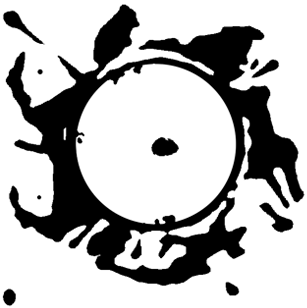Today I was listening to a Pop Art discussion on WPS1 Art Radio. It must have been from the 70’s or 80’s, I couldn’t tell because there were no discernible date references. I caught the last three speakers --all art critics. The first one seemed to be defending, or advocating, the qualities of Pop Art, but the last two caught my ear the most.
Neither was condemning the movement, but they both had a bone to pick with Pop Art for seemingly antithetical reasons. One said that while talking to Lichtenstein he told the artist that he didn’t like his cartoon paintings because (and I am greatly summarizing here) the subject matter was "so strong that he could not see the painting, or its qualities as an object." The other one used as his case study the Campbell’s Soup paintings by Andy Warhol, and said that his problem with them was that the subject matter was so banal and timid, that they might as well not have any subject matter at all. That such choice showed a lack of passion and a sort of “running for cover under the roof of graphic design” [my own words, it’s hard to recall word by word what he said].
Although I think both those artists were good and skillful, specially Warhol; I tend to agree a lot with the points mentioned by the last critic who went on to talk about the old Western habit of making a tyranny out of every movement. What I don’t agree on with any of them is on the premise of having to choose between form OR subject matter, (the Greenbergian tyranny of minimalism), and on the belief that somehow subject matter takes away from the concerns of the craft and the search for new ways of expression. If post-modernism has shown us anything is that the search for new media has arisen FROM the need to express new ideas. If you doubt this, look at all the artists that were the greatest defenders of “art for art’s sake.” How many new media did they come up with? With the exception of Duchamp and Picasso they were all highly romantic artists working on 19th century methods even as new discoveries in industry were bypassing them at lightning speed. Even the Futurists chose canvas and bronze as their mediums! Paradoxical indeed...
Luckily, our generation is leaving Herr Greenberg behind more and more, even if they circumspectly shy away from denouncing his beliefs. But even as artists increasingly embrace a complexity in subject matter, many will nod in approval when somebody starts pontificating on the virtues of “Art about Art.” Hmmm... is the same meekness behind our current political quagmire? :-)
Anyway, the truth is that an art about art will limit your palette quicker than anything else, because the things you are talking about are contained within the medium itself! In other words, if there is nothing to express outside of yourself, or the items in your toolbox, it is very rare that you will find the need for new ways of expression (and therefore growth), or engage in the play of meanings and ambivalence (whether in media or subject matter) present in many of the art that today continues to move us. You will just engage in an exercise in banality in which you are rearranging the same materials, or ideas, over and over; more like a decorator, and not like a propagandist, which we all are.
By this I’m not saying that you should drop what you’re doing, and start doing Bolshevik or neo-classicist posters, but that we should stop mindlessly repeating this minimalist mantra that subject matter eats away at objectivity. We should all hope that the objects we produce are AS COMPLEX as the subject matter that propels them!
I have not seen one single purist movement that was known for its creativity. Not in literature, not in religion, not in government. Usually such movements tend to be destructive because they are based on exclusivity, are too often guided by some sort of tunnel vision, and have no use for tolerance, adaptation, or practicality.
So embrace your subject matter, and most importantly, EXPLORE IT to its fullest, both in content AND form. Weave a beautifully simple and/or tangled web, but weave it well, and artfully, because nothing is unconditioned, and art will give you ideas about life, but life will give you ideas about art.
Monday, May 17, 2004
Subscribe to:
Post Comments (Atom)

No comments:
Post a Comment